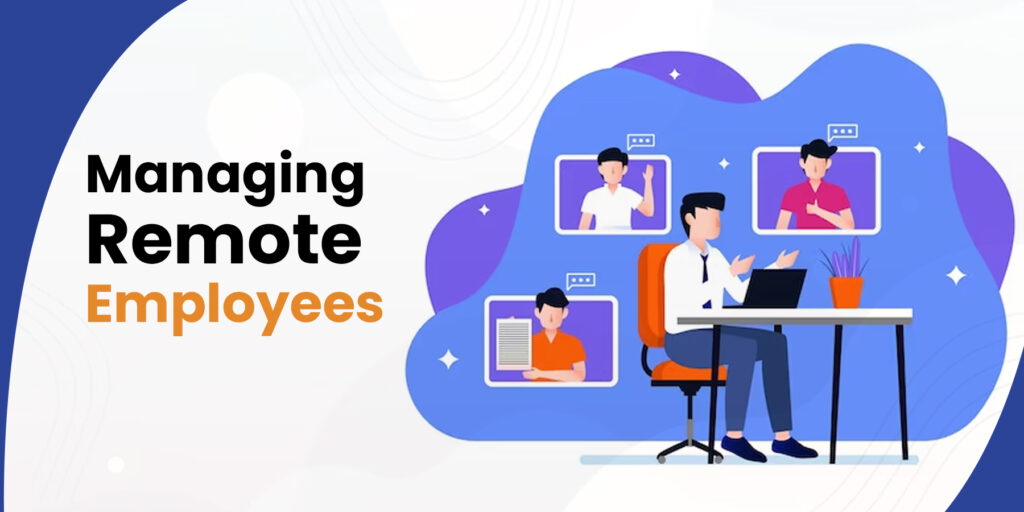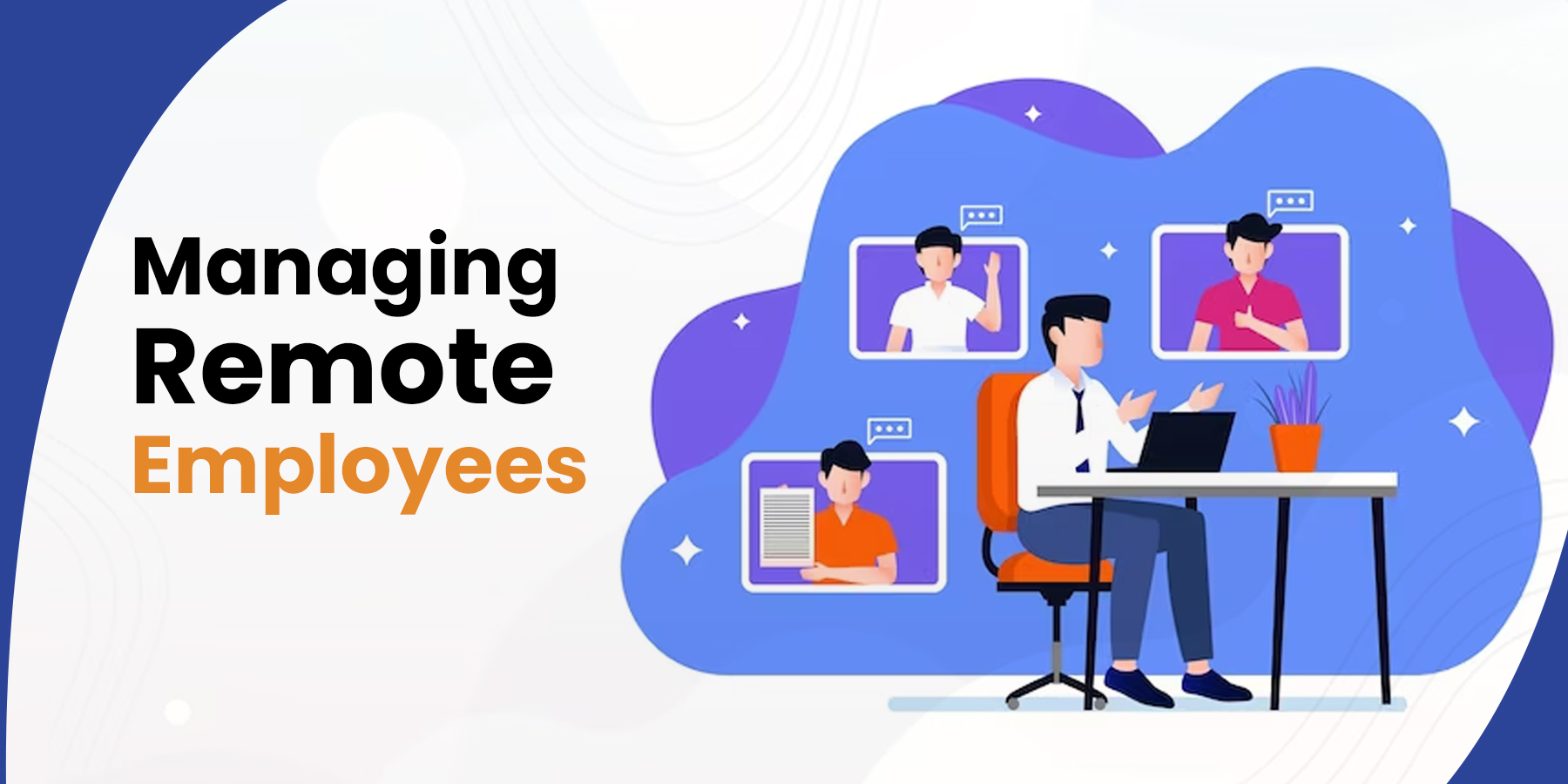
With the growing use of high-speed internet and communication tools, many people can now work remotely. Many workers have discovered that working from a remote site is more flexible and convenient than working in an office, enabling them to balance their personal and professional lives better. Additionally, the cost of commuting and business overheads have decreased due to remote work for employers and employees.
Given the advantages that remote work can provide for employees and enterprises, many businesses are considering incorporating it permanently into their operations. Many companies are seriously considering recruitment process outsourcing to build these remote teams. They have discovered that managing remote employees is more profitable and productive for their businesses. This blog outlines the crucial four tips for managing remote employees.
1. Attention to Connectivity, Communication, and Culture
Managing remote employees presents specific difficulties that regular office-based teams rarely experience. Remote teams operate from different physical locations, which can result in isolation, poor communication, and a sense of being cut off. Leaders must intentionally foster connectivity, communication, and culture in a remote work environment.
Leaders should create opportunities for remote team members to interact with one another to increase connectivity. These could be casual conversations or virtual team-building exercises. Managing remote employees requires effective communication, and leaders must ensure channels are open, trustworthy, and inclusive.
By establishing shared values, norms, and objectives for the team, leaders can help to create a productive culture of remote work. Regular check-ins, feedback, and appreciation of team members’ contributions will help with this. Leaders must also ensure that remote team members feel empowered and supported to perform at their highest level.
2. Building Trust and Maximizing Potential
The ability of distant teams to collaborate effectively depends on trust. A higher level of trust between team members and leaders is necessary when managing remote employees. Leaders must have faith in their team members to work independently, use time management skills, and produce outcomes.
It takes time and effort to establish confidence in distant teams. In their interactions with team members, leaders must be open, truthful, and responsible and keep their word. Giving team members chances for informal conversation, such as online coffee breaks or social gatherings, can help develop rapport and trust.
Leaders should recognize and applaud the accomplishments of remote team members while managing remote employees. They have to offer regular criticism and thanks for their contributions. This kind of feedback can foster a sense of unity and pride in the team’s work and confidence and trust within the group.
3. Achieve Daily Success with Specific Tasks and Deadlines
To maintain attention and productivity, you can give remote team members straightforward tasks and deadlines. With clear goals, remote workers may feel more organized, which would avoid missed deadlines and subpar output.
Leaders managing remote employees must provide their members with assignments and deadlines that are precise, measurable, and reachable. Setting attainable completion dates and breaking down larger projects into smaller, more doable jobs are required.
Leaders should consider employees’ difficulties during remote work, such as time zone variations and communication barriers while establishing assignments and deadlines. They must work with team members to develop reasonable deadlines. They must ensure they have the tools and assistance they need to complete their tasks. These are some additional aspects of managing remote employees.
Regular check-ins and comments help remote team members keep up with their assignments and due dates. Leaders must be accessible to address concerns, offer direction, and extend assistance as required.
4. Promoting Self-Management and Remote Achievement
Self-management is an essential ability for remote workers, especially younger ones who could have trouble adjusting to the independence and autonomy needed for remote work. Maintaining strong self-motivation and discipline among remote workers is an essential part of keeping employees remote. It assists them in time management in the absence of direct supervision.
Leaders may encourage the development of self-management abilities in their remote team members by setting clear expectations and offering assistance and direction. It entails assigning specific assignments and due dates. The other aspects are offering them tools and resources to assist them in managing their burden and providing ongoing coaching and feedback.
While managing remote employees, managers can motivate their staff to take responsibility for their work and proactively seek professional advancement. It can encourage a sense of ownership and investment in their work while also helping to boost motivation and confidence.
Leaders may increase the productivity and effectiveness of their remote team members by helping them acquire self-management abilities. They can also promote a culture of ongoing learning and development. As a result, team members may experience higher levels of job satisfaction and retention, which will improve the company’s overall performance.
Conclusion
Leaders must take the initiative to develop connectivity, communication, and culture while managing remote employees. It requires deliberate effort and the commitment to adopt new working practices, but when done correctly, it may provide a highly effective and motivated remote workforce. The success of remote teams depends on trust. While managing remote employees, leaders must prioritize developing confidence with their team members by being open, responsible, and encouraging.
For a remote team to be successful, you must establish specific duties and deadlines. To guarantee that their team members can reach their goals and be successful in their work, leaders must prioritize practical and clear communication, realistic timetables, and support for their team members. For remote workers, self-management is a crucial talent, and leaders may help develop this capacity by setting clear expectations, offering advice, and offering assistance.
You can also contact recruitment process outsourcing companies like RecruitNinjas for end-to-end remote staff management and assistance with overcoming the difficulties associated with remote hiring. Contact now and get started!
This blog is inspired by the video ‘How To Lead A Remote Team Successfully In 4 Ways | Forbes’ by ‘Mark C. Perna’, a Forbes contributor.
Kimberly Morrison
Kimberly Morrison has been the Director of Client Relations at VGROW since 2019. She builds strong customer relationships, drives client retention, and oversees team productivity. Kimberly's approach to customer engagement is key to VGROW's aim of streamlining business processes through virtual assistance services.


 The Rise of Automation: How AI is Reshaping the Workforce
The Rise of Automation: How AI is Reshaping the Workforce Key Steps and Considerations for Creating a Strong Software Development Team
Key Steps and Considerations for Creating a Strong Software Development Team